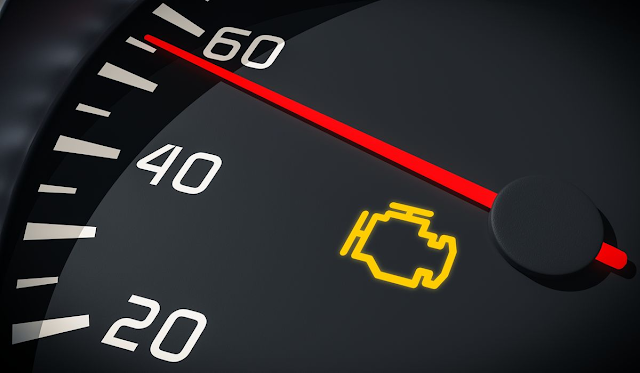What Are The Common Reasons For Your Car's Check Engine Light Is On
The check engine light is a red flashing light on your car's dashboard or instrument cluster. The light signifies an issue associated with the vehicle's emission system, which can be a significant problem if it stays on long enough.
Since you are reading this, we can surmise that you want to know why your check engine light is on and what you can do about it. Here are six common reasons why your check engine light is on. But if you are unable to find the root cause of your check engine light turning on & need a reliable mechanic for auto repair in Dunwoody then get connect with wrights Car Care right away.
6 Common Reasons Why Your Check Engine Light Is On
#1 A Sticking Gas Pedal
A sticking gas pedal can lead to a lack of power at low speeds and reduced acceleration at highway speeds. If this happens frequently, it could be an early warning sign that something is wrong with your car's fuel system, such as a leaky fuel filter or cracked fuel lines.
If this happens while you are driving, it's essential to pull over immediately and address the issue before it worsens and puts other drivers at risk of an accident.
#2 Your Gas Cap Is Loose
A loose gas cap can lead to carbon monoxide in the vehicle's exhaust system. This is because carbon monoxide is created when fuel burns and produces carbon dioxide (CO2).
The CO2 mixes with oxygen in your cabin, which can cause headaches, nausea, and dizziness. A loose gas cap also may be a sign of other issues with your vehicle.
#3 Low Tire Pressure Warning
The Low Tire Pressure Warning (LTPW) system uses a sensor in the tire to check for leaks and keep the air pressure in your tires at a safe level.
If it detects an abnormal drop in air pressure, it will trigger the LTPW light. This may occur if the car has been sitting for an extended period without being driven or if you have a flat tire that needs to be replaced.
Fixing this problem will reset the LTPW system and make it go off, but you should still have your technician check it so they can repair any additional damage, such as an internal leak or broken hoses.
4. Oxygen Sensor Malfunction
The oxygen sensor monitors your engine's fuel and controls ignition timing based on how much oxygen is in the exhaust. If this sensor fails, it will constantly misfire and fire a check engine light.
The problem will most likely show up as random misfires or stalling, but if you run out of gas for more than a few seconds, it's time to have it diagnosed by a mechanic.
5. Bad Catalytic Converter
The catalytic converter is the part of your car's exhaust system that cleans up the harmful emissions from your car. It also acts as an after-treatment device, which means it collects much of the smog and pollution emitted by cars.
The catalytic converter has several parts that are important for its function, including the converter itself, with its ceramic honeycomb core, the converter's heat exchanger, and the high-temperature insulation.
You will get a "Check Engine" light on your dashboard if these components fail.
The most common cause for this is dirty or clogged catalytic converters. A clogged one can waste fuel and emit more toxins into the air than necessary, which causes your check engine light to come on.
6. Faulty Spark Plugs
Last but not least, another common reason for a Check Engine light is faulty spark plugs. These devices are designed to provide an electrical connection between the ignition system and the fuel injection system, which ignites the air-fuel mixture in your engine. The problem with these devices is that they can become dirty over time and develop a fault if they are not cleaned regularly. This can cause misfires, reduced fuel mileage, and a Check Engine light on your dashboard.
To fix this problem, you must replace your spark plugs every 100,000 miles or 12 months, whichever comes first. If you wait longer than that, you may need to replace more expensive components of your engine, such as your catalytic converter or oxygen sensor.
The Bottom Line
If you have a check engine light on, don't ignore it. Whether you are about to get your car serviced or you are waiting for an appointment: if your check engine light is on and staying lit, it's important to address why it's there. Hopefully, this article has given you insight into what the lights are trying to tell you and what they mean. Remember that any light can be harmless, but remember that ignoring them could lead to more trouble than you realize. It is best to hire a expert auto repair mechanic to get these issues fixed before it get worsen.



Comments
Post a Comment